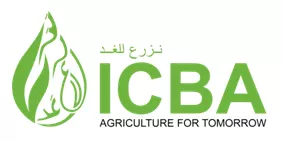National Strategy to Combat Salinity and protection of water resources from pollution and salinity in the Sultanate of Oman
2 October 2012
The National Strategy to combat salinity and protect water resources from pollution and salinity in Oman was launched on 2 October 2012 in Oman by Sheikh Fadl bin Mohammed Al Harthy, Secretary-General of the Council of Ministers. Sheikh Fadl praised the strategy as ‘a scientific and realistic diagnosis of the problem and places that experience salinization’. The land resources of the Sultanate of Oman suitable for agriculture are limited, yet agriculture continues to be a major source of employment.
Dr Ahmed bin Nasser Al Bakri, Director-General of Agricultural and Livestock Research, outlined the rigorous process of the two-year program which included five technical teams working on different aspects: water resources and modeling, agricultural status and salinity impact, socio-economic assessment, governance, legal/regulatory frameworks and policies, and capacity development.
In collaboration with the Directorate General of Agriculture and Livestock Research of the Ministry of Agriculture and Fisheries in Oman, ICBA played a major role in leading the formulation of the strategy. Continuous consultation with key ministries, government agencies and local and international specialists ensured that the Strategy incorporated the best expert assessment and synthesis in order to deliver high-quality outcomes.
Dr Ismahane Elouafi, the ICBA Director-General, commended the Sultanate's role and vision in driving the preparation of the strategy. ICBA’s expertise in applied scientific research to preserve limited freshwater resources ensured the rigor of the study’s findings and recommendations. The study indicated that excessive water use is the prime cause of salinization of agricultural soils. In many areas water demand exceeded supply resulting in the intrusion of saline water into the aquifers. Even when the groundwater was considered good quality, poor on-farm management complicated the problems by causing salinization of the soil. The study recommended alternative strategies to improve water use and monitoring, soil management and agricultural production on the different types of soil and water conditions, strategic options to reduce seawater intrusion, and tactics (in the short-, medium- and long-term) to implement solutions across the Sultanate of Oman.











